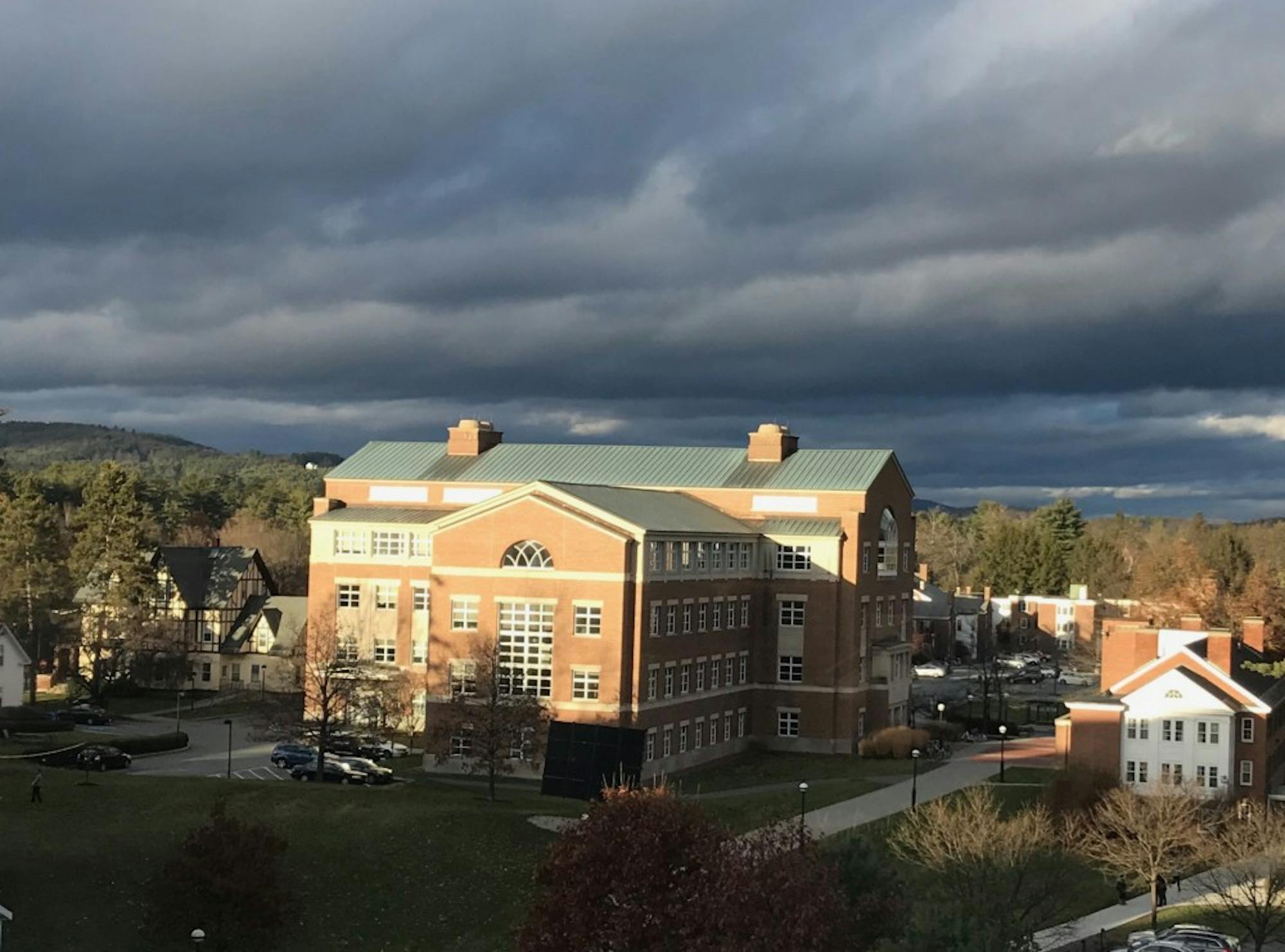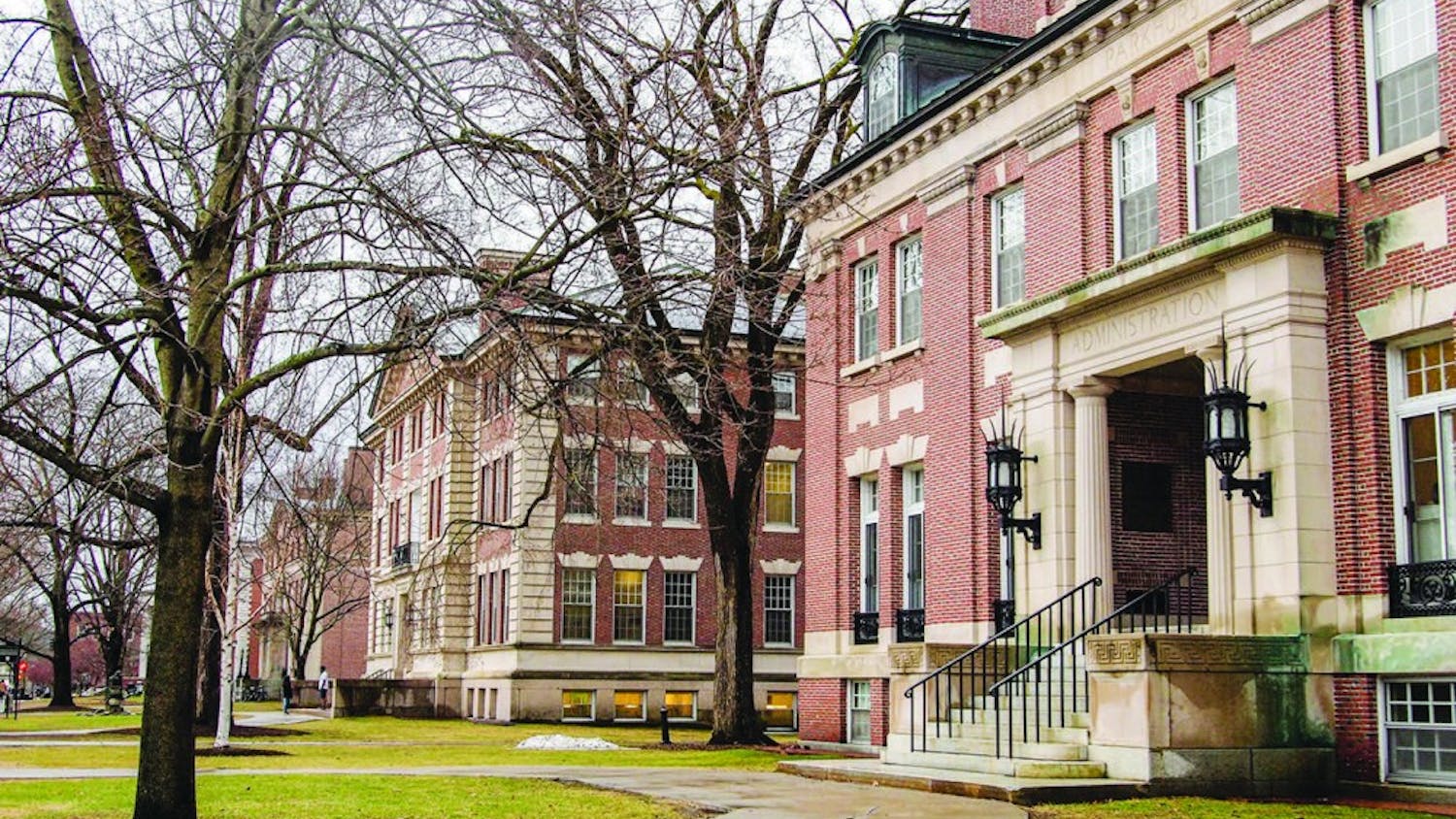Updated May 2, 2019 at 2:10 p.m.
Two former Dartmouth students have signed on as plaintiffs to an ongoing lawsuit that alleges that for over 16 years College officials ignored evidence of sexual misconduct by three former psychological and brain sciences professors.
In an amended version of the original plaintiffs’ complaint filed yesterday in the U.S. District Court of New Hampshire, the two former students bring forward additional allegations of sexual assault and harassment, adding to an already significant and graphic list of charges made by seven other women who allege that the three PBS professors turned the department into a “21st century Animal House.”
The original lawsuit, which calls for $70 million in damages, was filed in November 2018. The two new plaintiffs, labelled under the pseudonyms “Jane Doe 2” and “Jane Doe 3,” add new allegations against former professors Todd Heatherton, William Kelley and Paul Whalen — all three of whom left the College last summer after an internal investigation led to recommendations of their termination.
“We applaud the courage of the two women who have added their harrowing accounts to the chorus of others who were assaulted, harassed and prevented from pursuing their studies at Dartmouth,” wrote lead counsel for the plaintiffs Deborah Marcuse in an email statement to The Dartmouth.
Jane Doe 2 is described in the complaint as a former Dartmouth undergraduate student who attended the College from 2008 to 2012 and worked as a research assistant in Heatherton’s lab from fall 2012 to spring 2013. The lawsuit says that Kelley and Whalen began to make sexual comments about her in her presence, and that in November 2012, she was sexually assaulted and had non-consensual sex with Whalen.
In April 2013, the filing alleges, Whalen again initiated sexual advances toward Jane Doe 2 and “choked her to the point that she feared for her safety,” upon which a Dartmouth security guard soon walked in. Later, during Jane Doe 2’s final week working in the lab, the lawsuit alleges that Whalen invited her to a baseball game and said, “You’re not going to tell anybody, right? We’re good, right?”
The complaint describes the second new plaintiff, Jane Doe 3, as a former graduate student and post-doctoral fellow who attended Dartmouth from 2003 until 2009 and worked in both Heatherton’s and Kelley’s labs.
Jane Doe 3 did not originally work in Kelley’s lab, according to the complaint, but was encouraged to do so by Kelley in November 2003. The complaint alleges that after joining Kelley’s lab, Jane Doe 3 was coerced into an ongoing sexual relationship with him.
The filing alleges that a different female graduate student contacted former PBS chair Howard Hughes in 2004 to report knowing of a sexual relationship between Kelley and Jane Doe 3. Multiple students made similar complaints about Kelley and Jane Doe 3 between 2005 and 2007, according to the filing.
Jane Doe 3 alleges in the complaint that Kelley regarded her as a sexual object rather than a scientist, and told her she was “too pretty to be smart.” The suit additionally claims that Jane Doe 3 was referred to in the department by a sexually demeaning nickname, coined after Heatherton shared with male PBS faculty members that he hoped the plaintiff’s shirt buttons would open during her interview.
The complaint alleges that when Jane Doe 3 attempted to end their sexual relationship, Kelley threatened to withdraw academic support for Jane Doe 3. When Jane Doe 3 ended the relationship in 2007, the filing alleges that Kelley told her, “Good luck getting your Ph.D. now.” In retaliation, the lawsuit claims that Kelley gave data Jane Doe 3 collected to another student and removed her from an ongoing research project.
In fall 2017, the complaint alleges that Kelley called Jane Doe 3, advising her to not speak with anyone from Dartmouth about the investigation. In October 2017, PBS department chair David Bucci contacted Jane Doe 3 informing her of the Title IX investigation and acknowledged “rumors” of Jane Doe 3’s relationship with Kelley, according to the filing.
“The new complaint shows that there is a long-standing problem, and women are coming forward to address it,” said Charles Douglas, a Concord, NH attorney who is one of the lawyers for the plaintiffs, in an interview with The Dartmouth.
In an email statement, College spokesperson Diana Lawrence wrote that the new allegations in the updated complaint were not reported as part of an independent Title IX investigation begun in the spring of 2017.
"We take the allegations seriously and are investigating them now," Lawrence wrote.
Lawrence added that the College commends the individuals for stepping forward.
"We deeply regret that any student experienced or was exposed to such conduct at Dartmouth," Lawrence wrote.
Another story with more information will be published in the near future.



